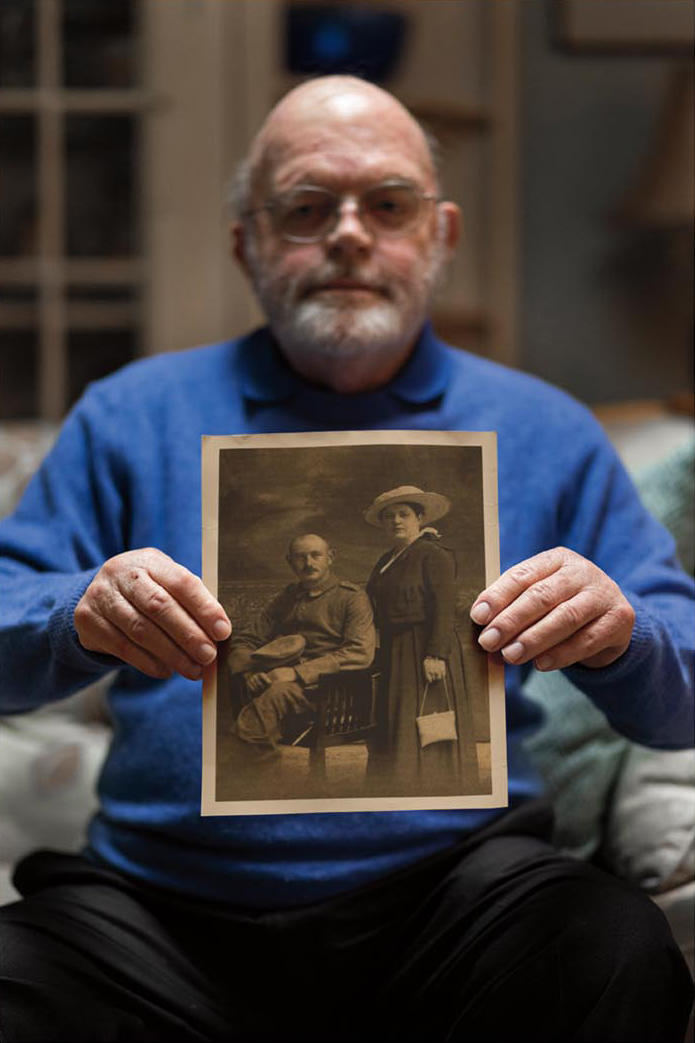“I loved growing up in Thailand,” he said, describing trips to the beach on weekends, a bustling city, and the myriad nationalities represented at his school. “It was a great place to live. There was never a dull moment.”
Ben graduated from the International School of Bangkok before finding his way to Puget Sound. During his senior year of college, after taking Lynnette’s class, he reconnected with his high school friend Chai Phonsuwan on a trip to Thailand. They talked about starting a business together.
“It was right when coconut water was becoming popular in the States,” he said. “We tasted it—and it tasted like crap. We weren’t used to that. We were used to growing up in Thailand, where they chop it right in front of you on the street, and it tastes amazing. So it was kind of like, how could this product sell so well in the States when it doesn’t even taste like it’s supposed to? That was the original inspiration behind everything.”
First, though, Ben tried out the PepsiCo job. It didn’t stick. “I’m a natural entrepreneur,” he told the class. “I couldn’t stomach working for a large company, so I left and started lots of businesses. I was kind of all over the place with my ideas.”
That’s when he and Chai got more serious about a business partnership. “We decided that we wanted to start a coconut-water company, and we had literally no idea how to do it,” Ben said. “He and I ended up traveling around the world, looking for different kinds of processing technologies to make coconut water safe for consumption while retaining the same taste as it does coming from a Thai coconut. We found a processing technique in Barcelona, of all places, ran it, and then found a product that we were happy with. In July of 2013, two years after I graduated from UPS, we launched Copra in New York City with our first sale.”
Five years in, business is good. “We just finished construction on our new factory, so now we are vertically integrated,” Ben said. “We have about 50 workers at the factory, 10 managers in Bangkok, and a sales team of five here in New York. We’re distributed in almost all the states, with our coconut water, coconut meat, and coconut smoothie. We’ve had a few really good years, and we’re not stopping anytime soon. I’m really excited to see what else we can come up with.”
Lynnette’s students looked rapt. It was time for questions. “How much starting capital did you have?” someone asked.
“I didn’t have much, and that was a mistake,” Ben said. “I was naive about how much it took. It was all my own savings.”
Adam stopped munching for a moment to ask about packaging and the bottle’s shape. “The design of the bottle is so, so important,” Ben said. “We launched by shipping 60,000 bottles from Thailand. When they defrosted, they dented and squeezed in half.” He and Chai learned to test the bottles for heat, freezing, and handling—now they own the molds.
Another student wanted to know about the advantage of owning a factory and the raw material in Thailand. “I should have majored in food science,” Ben said, laughing. “I spend half of my life talking to FDA agents.”
He said that contracting a factory in Thailand made it hard to ensure that their products met the stringent guidelines of the Food and Drug Administration. It made more sense to open their own factory, which has been easier to regulate.
Someone asked about the company’s most effective business-to-business strategy so far. “The way we got in, I just basically cold-called every store in Manhattan,” Ben said. “I walked into every deli and asked if they would buy it. Cold-calling is really an art, and you can get better as you go.”
Ben told the students that there are always unforeseen challenges for any entrepreneur. “You can never expect what’s going to happen. Every single day something could change in the market, or in the weather in Thailand, or some retailer gets bought out. You just don’t know what’s going to happen, so yeah, almost every week there’s a new challenge that we have to navigate.”
After half an hour, Lynnette asked Ben if he had any last words of advice to share. Her students were starting small businesses this semester, and they were as hooked on entrepreneurship as he’d been at their age. Ben brought it back to PepsiCo. “There’s nothing wrong with working at a big company to get experience, but also do your thing on the side,” he said. “Do everything you can, and start really slow. Enjoy it and see how it goes.”










